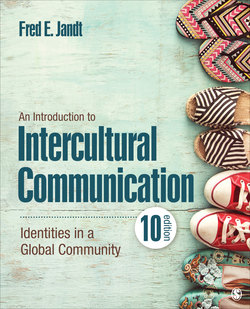Читать книгу An Introduction to Intercultural Communication - Fred E. Jandt - Страница 81
На сайте Литреса книга снята с продажи.
Global Voices
ОглавлениеThe easiest idea to sell anyone is that he is better than someone else.
Source: Gordon Allport, The Nature of Prejudice (1954, p. 372).
A less extreme form of ethnocentrism can be labeled cultural nearsightedness, or taking one’s own culture for granted and neglecting other cultures. For example, people in the United States often use the word Americans to refer to U.S. citizens, but actually that word is the correct designation of all people in North and South America. Its careless use is a form of ethnocentrism.
Cultural nearsightedness often results in making assumptions that simple things are the same everywhere. Designing forms for something as simple as a person’s name is not that simple if you recognize how widely practices vary. For example, in Mexico, people may have two surnames, with the first from the father’s first surname and the second from the mother’s surname. Often, only the first surname is used and the second abbreviated. When a woman marries, she usually retains both of her surnames and adds her husband’s first surname. Consider China, with 1.4 billion people and only about 4,000 surnames, with 85% of the population sharing 100 of them. According to the National Bureau of Statistics of China, nearly 93 million people share the name Wang—the most common surname in the world. Second most occurring is Li, with some 92 million Chinese. The most prevalent surname in the United States, Smith, is shared by 2.4 million people.
Another example is Eurocentric ethnocentrism. This would include, for example, recognizing only Western holidays in schools or basing curriculum only on Western history, music, and art. The terms the West and the East themselves have been labeled Eurocentric ethnocentrism. Asia is east of Europe, but to call Asia “the East” makes its identity dependent on Europe.
Extreme ethnocentrism leads to a rejection of the richness and knowledge of other cultures. It impedes communication and blocks the exchange of ideas and skills among peoples. Because it excludes other points of view, an ethnocentric orientation is restrictive and limiting.
